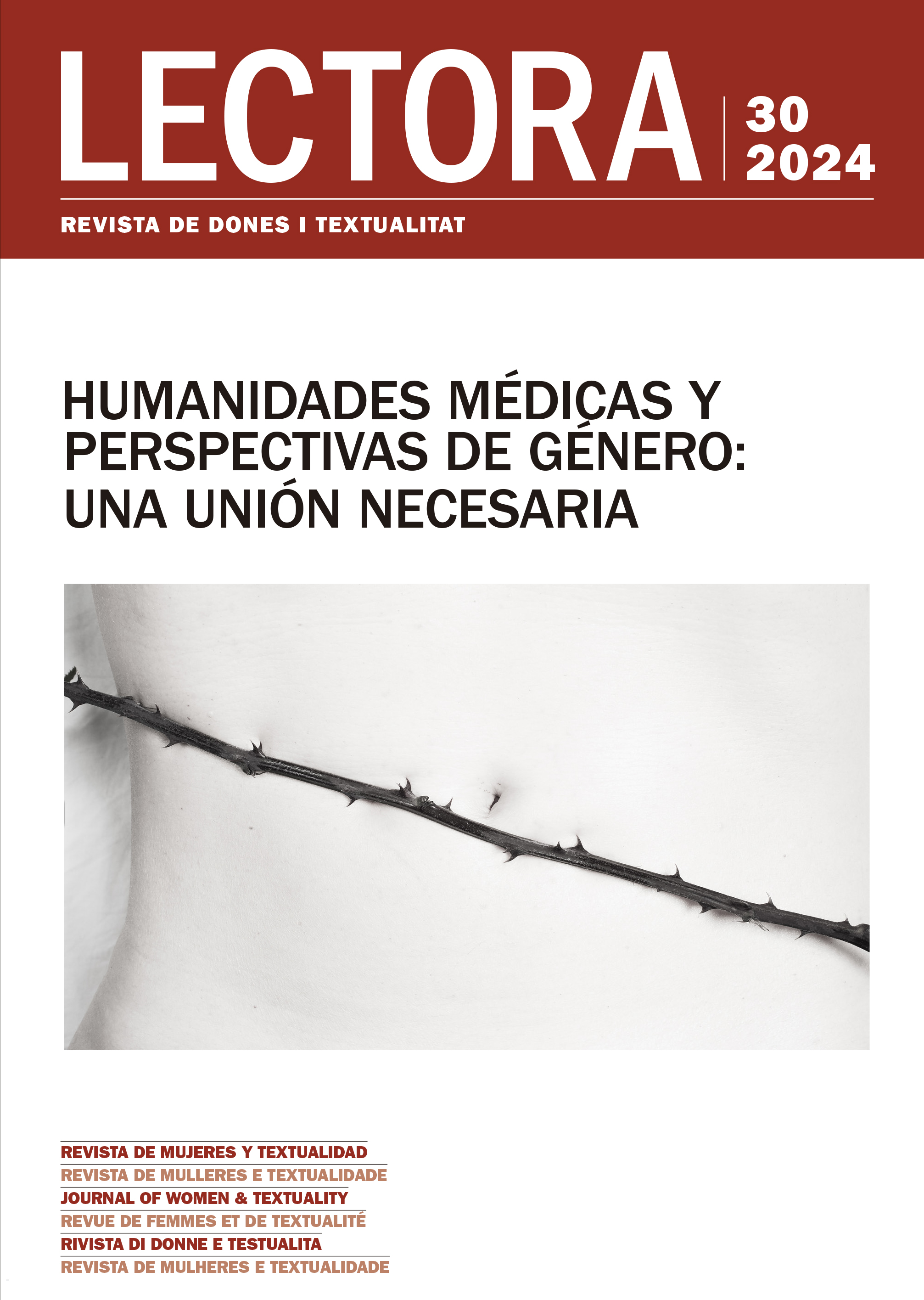Violencia obstétrica y activismo maternal anishinaabe en Future Home of the Living God: el futurismo indígena de Louise Erdrich
DOI:
https://doi.org/10.1344/Lectora2024.30.10Keywords:
Louise Erdrich, Future Home of the Living God, Indigenous Futurism, obstetric violence, Anishinaabe maternal activismAbstract
This article analyses Chippewa author Louise Erdrich’s Future Home of the Living God (2017) from a gender and health humanities perspective. In this Ecocritical Dystopia, or Indigenous Futurism, there are two medical institutions which, from a Western gaze, pathologise the female body and subject it to obstetric violence, that is, a series of grossly violent and intrusive practices around maternity care (pregnancy, birth and postpartum). Throughout this article, I will examine the Western medical model that the novel puts forward and thus demonstrate how colonial spatialities and reproductive futurisms actively participate in obstetric violence, a perspicuous form of biocolonialism. With this article, I aim to emphasise the different ways through which the medical structures and practices disseminated by settler colonialism, in contraposition to traditional Native American female spaces and Anishinaabe maternal activism, embody oppressive spaces which desacralise and instrumentalise the female anatomy and maternity.
Downloads
Published
How to Cite
Issue
Section
License
Copyright (c) 2024 Rosa Segarra-Montero

This work is licensed under a Creative Commons Attribution-NonCommercial-NoDerivatives 4.0 International License.
The Author retains ownership of the copyright in this article and grants Lectora: revista de dones i textualitat the rights to print publication of the Article. The work will be available under a Creative Commons Attribution-Noncommercial-No Derivative Works license, by which the article must be credited to the Author and the Journal be credited as first place of publication.
The Author is free to enter in seperate, additional contractual agreements for the non-exclusive distribution of the work as published in this journal (such as institutional repositories or a book), as long as the original publication in Lectora is credited.
The Author is encouraged to post the work online (eg in institutional or thematic repositories, or in their website), as it can lead to productive exchanges as well as to a greater citation of the published work (see The Effect of Open Access).




